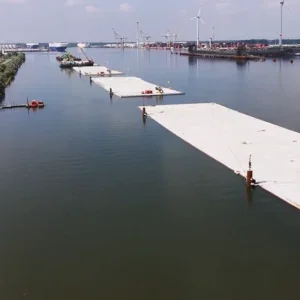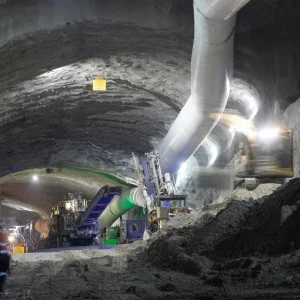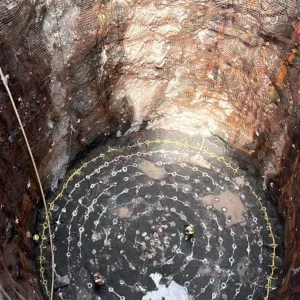The tunnelling industry, which has shown its resilience during the global economic turmoil, could be under threat as Greece jeopardises the world’s financial stability. Emerging economies, the main source of new work through the western recession, are reliant on a stable Euro filling their foreign exchange coffers to protect growth. If the situation in Greece is not resolved, a weakening or destabilisation of the Euro could have a domino effect on the newest tunnelling markets.
As I write, Athens is playing host to international inspectors who will soon rule on whether or not the European Union (EU), the International Monetary Fund (IMF) and the European Central Bank – together known as Troika – will grant Greece an EUR 8bn (USD 10.9bn) bailout to save it from bankruptcy next month.
In a brilliant flow chart published by the BBC (www.bbc.co.uk/news/business- 14977728) it is clear that regardless of the actions of Troika, or the austerity demands, Greece is set for a very grim future. The only question that remains is whether the rest of the eurozone will be brought down with it.
The euro was created in 1999 under the Maastricht Treaty. Clear criteria were set out for each country to meet before it was eligible to join. In short, they were: control of inflation rates; an annual deficit of less than three per cent; a debt of less than 60 per cent GDP; and control over long term interest rates.
When Greece joined the euro in 2001 the criteria were seemingly thrown out the window. It had a national debt of 117 per cent, a government deficit of more than three per cent, high unemployment and high inflation.
Investors warned at the time that allowing Greece to join the euro would send out the wrong signal to the financial markets suggesting that weaker economies may be allowed to join without fulfilling the Maastricht criteria, and would diminish confidence in the men controlling it. Greece backed it. Then Prime Minister Costas Simitis said: “We all know that our inclusion in the European Monetary Union ensures for us a greater stability.”
The investors were right. This initial flouting of the rules prompted the EU to throw the whole book away in an effort to regain control over the currency. When the financial crisis struck at the end of the decade the EU changed the rules on bailouts (which were not allowed under the Maastricht Treaty) to have greater intervention powers. There is still no way of exiting the euro without leaving the EU altogether.
Outside of Europe the popularity of the euro as a national reserve currency has been growing since its launch. Encouraged by a weakening and less reliable US dollar and Japanese yen, it quickly replaced the old deutsche mark as the second most popular Foreign Exchange (Forex) Reserve.
Forex reserves are a vital tool for countries to stabilise their economies in the global market. In rapidly developing markets, where tunnellers are weathering the recession, these reserves build confidence for foreign investors, helping control inflation and exchange rates. And the euro is playing a key role.
According to IMF figures, in 1999, 71 per cent of reserves globally were in US dollars and just 18 per cent in euros. By the end of last year the euro accounted for 26 per cent, taking much of its growth from the US dollar, which fell to 64 per cent.
In emerging economies the popularity of the euro has grown more rapidly than in advanced economies. In 2010 almost a third of Forex reserves in new markets were euros. While each country holds its Forex make up as a closely guarded secret, it is likely that two of the most significant tunnelling markets will be affected. It is thought China holds some 10 per cent of its reserve in euros. And India is thought to have 25 per cent of its reserve in euros.
The eurozone turmoil will pose challenges for developing markets over the coming months. According to leading economists, loss of faith in the euro would lead to a global meltdown and the resilience of the tunnelling industry will be truly tested.
Jon Young







